|
There are 10 to 15 million Syrian-Lebanese people in Latin America. There is a community of about 5-10 million living in Brazil, 3,5 million in Argentina and half a million in Venezuela. They are mostly Christians who fled the Ottoman Empire at the end of the 19th century. They forgot their language and assimilated to the Latin American culture or so it seems.
A revival of Syria-Lebanese identity Before it was not rarely seen that these families use Arab words in their family dialect of Portuguese and Spanish. Also people should not forget that in those families grand mothers dish is mostly a Syrian-Lebanese dish. Now we see in São Paulo Arab cultural happenings with typical food and dance. Also more and more decedents are learning Arabic. With the Syrian crisis there is manifestation of their cultural and political identity, rarely seen in the Syria-Lebanese Diaspora, more commonly seen in the Palestinian Diaspora. The strange thing is that the revival started earlier than the Syrian crisis. Raise of the left and the strategic alliance with the Middle East Around the start of the new millennium a new leftist caudillo rose up, Hugo Chavez, for his socialism of the 21st century, he believed they needed a multipolar world, consisting of different dominant regional powers. In the first decade of the 21th century left-wing governments popped up in Latin Amerika. The anti-imperialistic logic and the terrorist attacks of 9/11 made the Middle East the focal point of the imperialistic and anti-imperialistic powers in the world. Chavez needed strategic alliances with the Middle East, he introduced a direct flight between Teheran and Caracas (Capital of Venezuela) and supported the regime of Al-Assad with oil shipments starting in 2010. Also current leftist President Maduro of Venezuela let a lawmaker form his party leave to Syria to fight with the regime, Maduro called it a dignified stance.When the war in Gaza broke out in 2014, Maduro said it would admit Palestinian children to Venezuela to give them medical care. He proclaimed that Israel was committing genocide in Palestina, while he is supporting genocide in Syria. In Uruguay the president Mujica said he would accept Syrian Refugees. The awaking Latin America's left and the Middle East forged a new anti-imperialistic axis or South-South relations in the first 10 years of the 20th century. The main countries involved are Brazil, Venezuela, Syria and Iran. In June 2010 Bashar Al-Assad did a Tour in Venezuela, Cuba, Brazil and Argentina, this was a first visit of a head of state of the Middle East to Latin America. His goal was to reactivate the relation with the diaspora in Latin America. Also to distribute anti-imperialistic publications to introduce people to geopolitics of the Middle East. Al-Assad and his wife seduced the public opinion and an energy treaty with signed between Venezuela and Syria, which would become crucial in the current crisis. Bashar Al-assad also took time to talk to the main leaders of the Syrian-Lebanese community to bring them closer to their roots. Just after the re-election of Chavez in 2012, he proclaimed that the opposition in Syria were terrorists, although this seemed more symbolical. The Syrian revolutions and the war that followed simultaneously could not leave the Syrian-Lebanese community untouched. Most of the communities and especially left wing of Syria-Lebanese community support the regime of Al-Assad. Only a small minority supports the revolution. The positions and mobilization of the communities in Venezuela, Brazil and Argentina. In Venezuela they still remember the 2002 coup d'état which was shown to the world in the documentary, the revolution won't be televised. For Venezuela of Chavez, later after his death, of Nicolas Maduro they supported the Syrian Regime, because they saw the revolution like in their country in 2002 as a coup d'état. They kept close contact with the Syrian embassy in Caracas and published the reports of the embassy in the press. For the Regime in Venezuela the “coup d'état” Syria was the work of Imperialistic forces and Al-Assad was doing a heroic battle against the reactionaries. On the other side Bashar Al-assad showed his solidarity with the violent crackdown on the protests in Venezuela earlier this year. Just a few days ago the university of Damascus honored Chavez for his bringing about a multipolar world on the 23th of April 2014. In Brazil the support is less ideological, but for example the Free Syrian Army (FSA) is considered as a terrorist group. The support from the regime comes mostly, because of fear of the Jihadist fighting along the FSA against the regime. They believe that this will lead to a new wave of immigration from Syria like at the end of the 19th century. Their community is mostly Christian and the community is afraid of the new position the minorities would have in a new Syria. In Argentina the support of the Syria-Lebanese community is mostly for the regime in Syria. They call the FSA, rats or Contra's like the army in Nicaragua that fought the Sandinistas. The supporters organized in 2012 a global march for Syria in Buenos Aires. The strange thing was that in Argentina, more than in Brazil and Venezuela the movement was geopolitical and strategic. They were protesting against the isolation of Iran and the destruction of the Shia axis. This is because there is an old and well organized community of Alawies in Argentina, and one of the founders of the Baath-party resided in Argentina. The diplomacy In November 2012 the special envoy of Al-Assad, Bouthaina Chaaban, was in Latin-America for treatment, but apparently this was a fake excuse to have a dialogue with the most important members of the Syria-Lebanese expats, like Al-Assad calls the diaspora. He met the Syrian-Lebanese vice-president of Brazil, Michel Temer, in a meeting organized by the Syria-Lebanese community in São Paulo. In Venezuela he tried to negotiate a new delivery of fuel and last but not least an escape plan for the Assad family and her entourage. Bashar Al-assad hold elections on the 3th of June of 2014, he send invitations to friendly countries, also the Latin American countries are included. The heads state and deputies of Brazil, Venezuela, Cuba, Ecuador, Bolivia and Nicaragua are invited to follow the poll. During Putin's tour in Latin America in July, he proclaimed that he wants that Latin America becomes their major ally according to his anti-imperialistic logic. The plan is to make Russia and the Latin-America more interconnected on the economical level. Russia is with the boycot of the Western world searching to import meat, fish, fruit and vegetables and diary products. These are opportunities for these communities, but what will this lead to in the future... Venezuela is buying weapons from China and Russia. China is an older player on the continent. The Latin-americans Caudillo's believe in a multipolar world, all they will get is a new imperialist power like China or/and Russia. The Latin American people are used to this, when the Chinese came they said it was a Chinese tale, or a lie, now it will a Russian tale. Conclusion Syrian regime is actively searching for military, energetic, public support in Latin America and the left in Latin America forged the public opinion in a way that it seems normal to support the regime from an anti-imperialistic viewpoint. The Latin American leaders are preparing a new home for the Syrian regime as the revolutionaries would be the mayor player in the construction of a post-conflict Syria. One thing is sure, the Syrian conflict is a mayor divider of the international communities. This won't bring peace to the innocent Syrian civilians who hardly survive the conflict in their country. This is the biggest mistake of the Latin American left, that they didn't support the people, but the heads of state. For this, the history will NOT absolve them. If you want to know there is not a single leftist brigade fighting in Syria and why the masses in the Arab world do not look to the left but to the right, to Islamists, for guidance, inspiration, and political leadership, start with the betrayal of internationalism and socialism by the governments of Venezuela and Cuba.
1 Comment
De voorbije jaren kregen maar 1200 Haïtianen per jaar een een visum om te wonen en werken in Brazilië. Volgens officiële cijfers zijn er zowat 15.000 Haïtianen in Brazilië. Een groot deel van hun hebben hun leven in gevaar gebracht om met mensensmokkelaars de tocht te wagen. Lamothe op bezoek in Brazilië
Van 20 tot 25 mei was de eerste minister van Haïti Lamothe op bezoek in Brazilië om economische, sociale en energetische relaties tussen de Brazilië en Haïti te bespreken. Tijdens de ontmoeting met de minister van buitenlandse zaken Antonio Patriota stond op de agenda de ongerustheid van Patriota in verband met de illegale immigratie van Haïtianen naar Brazilië. Op Braziliaanse grond had Lamothe een ontmoeting met Haïtiaanse emigranten, ze vertelden over hun moeilijke situatie in Brazilië, het werd dus duidelijke voor beide staatsmannen dat er dringend voor een oplossing gezorgd moest worden. Eindelijk een oplossing In onderlinge afspraak werd afgesproken dat de Haïtiaanse overheid alles gaat doen om de bevolking te sensibiliseren in verband met de illegale immigratie in samenwerking met de Braziliaanse Ambassade in Haïti. De Braziliaanse overheid heeft van zijn kant de visa restricties opgezegd voor de Haïtianen en het zal zoveel mogelijk visums aanvaarden als de ambassade de capaciteit heeft. De capaciteit is voorlopig 300 per maand. Het enige dat de Haïtianen zullen nodig moeten hebben om een visum te krijgen is een attest van goed gedrag en zeden, een curriculum vitae en een identiteitskaart. Conclusie Deze maatregel komt zeer onverwacht omdat het beleid van Brazilië een jaar geleden loodrecht stond op het actuele. Toen werd er nog gesproken over repatriëring en sluiten van grenzen voor de illegale immigratie. Nu is echter voor een humane oplossing gekozen. Dit strook met het menslijke buitenlandse beleid dat Brazilië wilt voeren om zo een zitje te krijgen in de VN-veiligheidsraad. 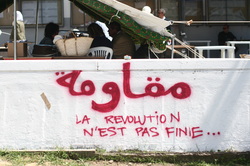 Francis Fukuyama stelde in '92 in zijn boek het einde van de geschiedenis dat het neoliberalisme overwonnen had. In 2001 gaf de mondiale civil society met het eerste Wereld Sociaal Forum (WSF) in Porto Alegre (Brazilië) weerwoord: een andere wereld is mogelijk! In 2002 werd het opnieuw georganiseerd, met als gast presidentskandidaat Ignacio ”Lula” Da Silva. Toen hij president werd later dat jaar vertelde Lula dat hij de verkiezingen niet gewonnen zou hebben moest het WSF in 2001 de harten en de geesten van de Brazilianen niet ontgrendeld hebben. Ondertussen heeft Lula in Brazilië en ver daarbuiten voor verandering gezorgd. Het WSF heeft een onmeetbare impact op de wereld. Het is een proces dat mensen samenbrengt die ervaring uitwisselen die soms heel divers is. Van 26 maart tot 30 maart werd het WSF in Tunis gehouden. Fotograaf Willemjan Vandenplas was aanwezig op de slotdag toen al de grote organisaties al naar huis waren en de Tunesiërs terug wakker werden in een conservatief regime. Dr Wael Albettrekhi, Palestijn van de nationale PLO delegatie en directeur generaal bij buitenlandse zaken van de PA (Palestijnse Authoriteit. Albethekhi: “ Het WSF is een open-space voor sociale organisaties waar wij onze rechten kunnen opeisen. Wij van de PLO eisen dat de Palestijnse staat herkend wordt, dit kreeg weerklank bij de meeste organisaties op het WSF. Wij willen dat “De Appartheid” stopt.” De sluitingsceremonie was een mars voor Palestina, op de dag van het land. Hier kwamen de verschillende organisaties samen en stapten samen naar de Palestijnse ambassade Mamadou Saa, Mauritanië, Nationaal Forum voor de Rechten van de Mens. Saa: “Het forum is één van de weinige momenten waarop heel ons netwerk samenkomt. Het is nu de derde keer dat heel ons netwerk deel neemt. Het is belangrijk voor ons om hier gemeenschappelijke werkpunten te vinden. Dit is belangrijk voor onze coördinatie.” De Braziliaan Eduard Carvalho verantwoordelijke voor sociale inclusie bij BNDES een Braziliaanse ontwikkelingsbank. Carvalho: “ Ik was aangenaam verrast door WSF in Tunis 2013. Het was vooral belangrijk voor de Tunesiërs. Voor andere landen was het belangrijk dat ze hun situatie en hun recente ontwikkelingen leerden kennen. Ik ben blij met de weg die we hier hebben gevolgd. Brazilië kan dienen als een voorbeeld voor de sociale ontwikkeling van Tunesië. We moeten de situatie verbeteren van de armste lagen van de bevolking. Wij hebben hier interessante uitwisselingen gehad met het Arabische volk.”
|
Archives
January 2015
Categories
All
|
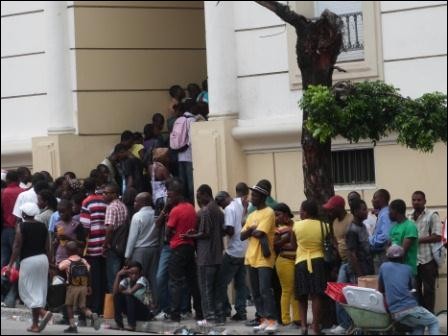
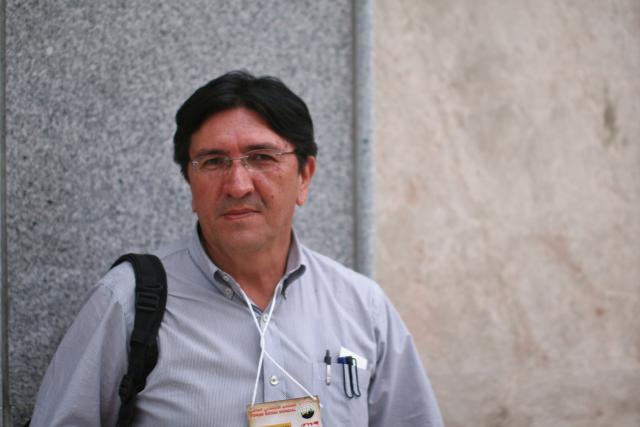
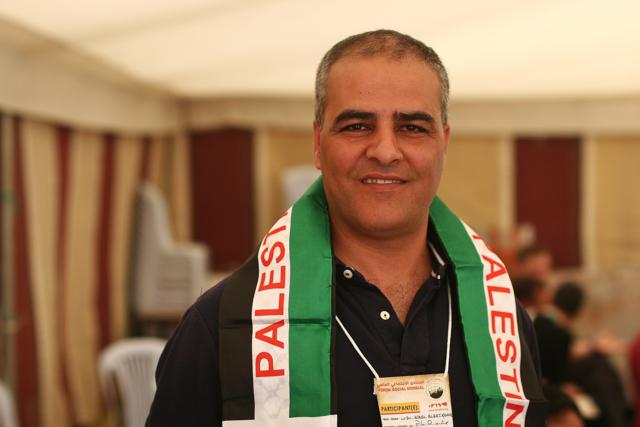
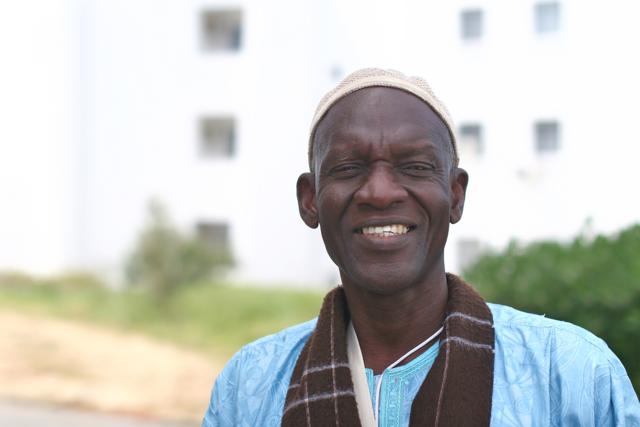
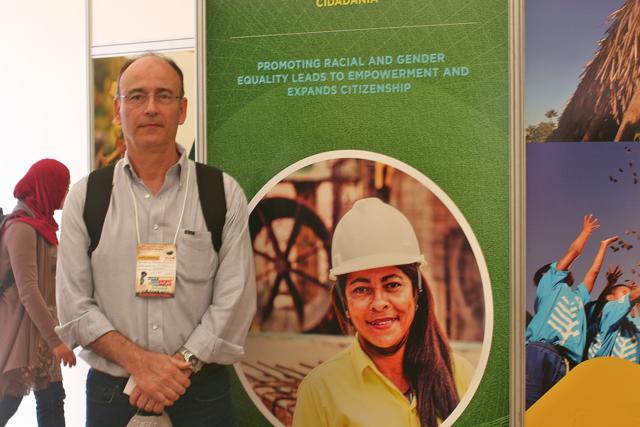
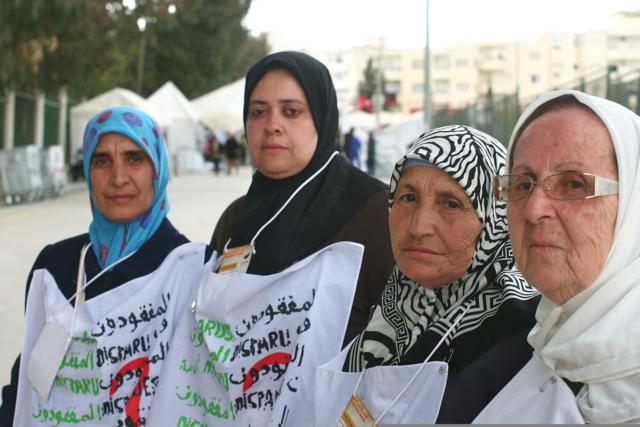
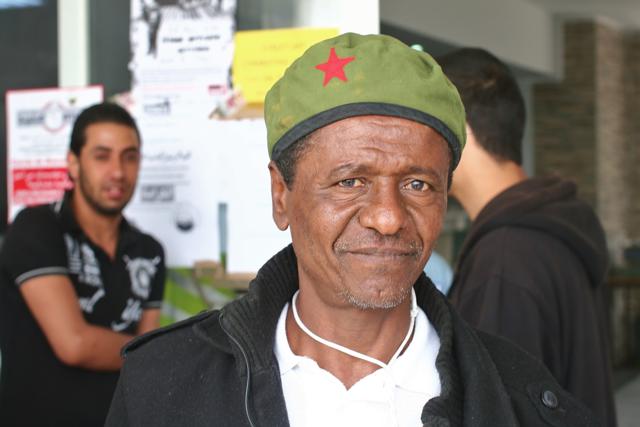
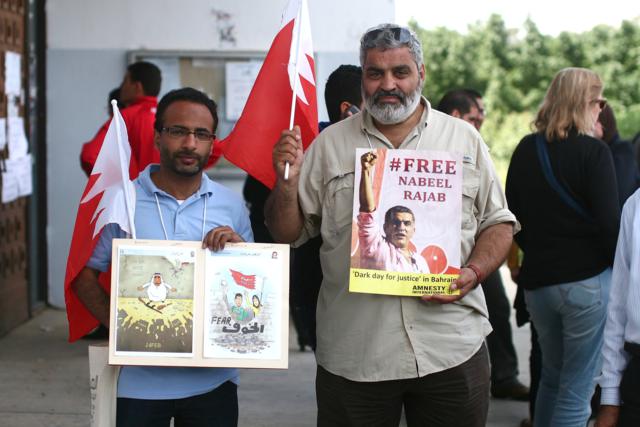
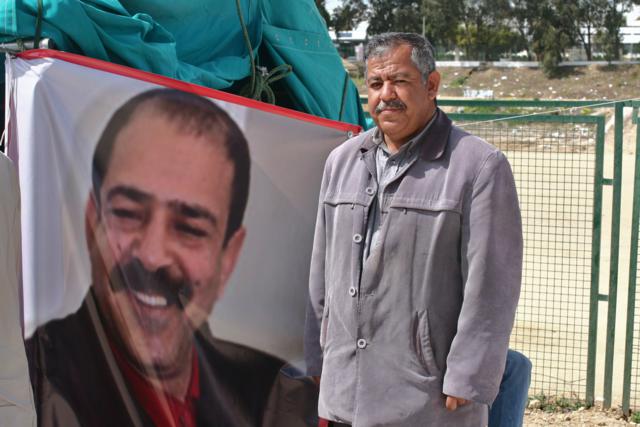
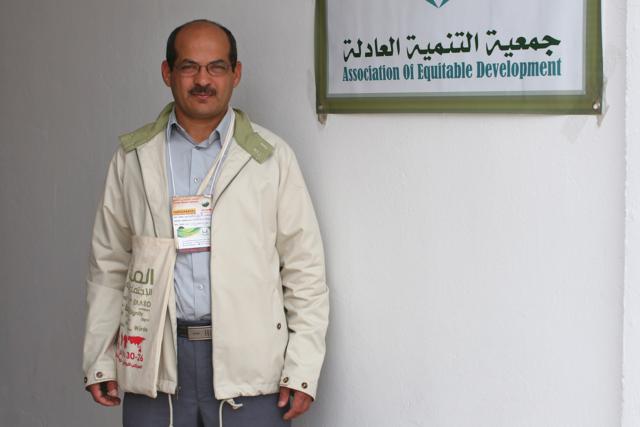
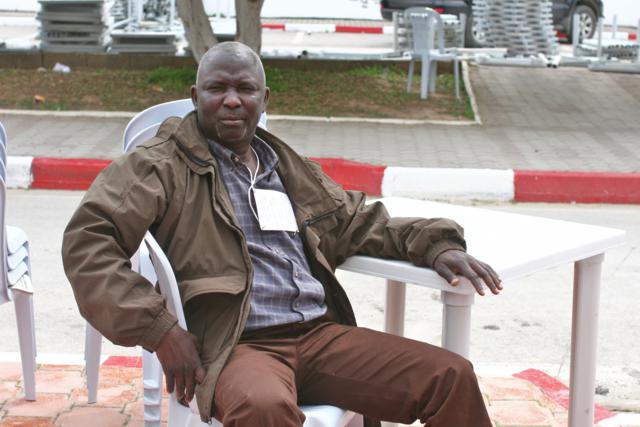
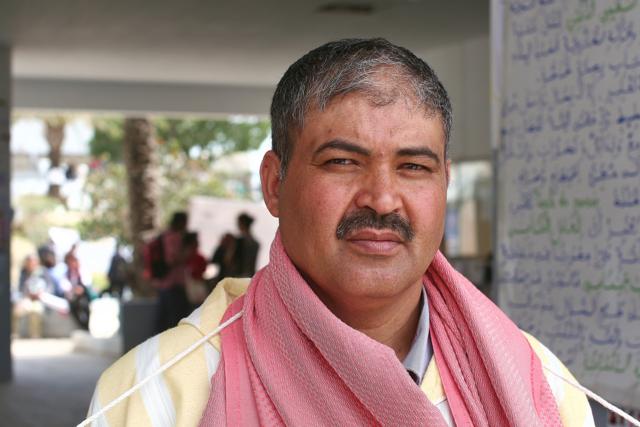
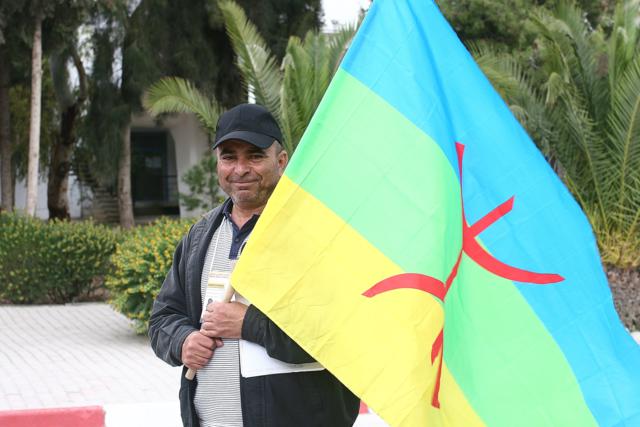
 RSS Feed
RSS Feed
